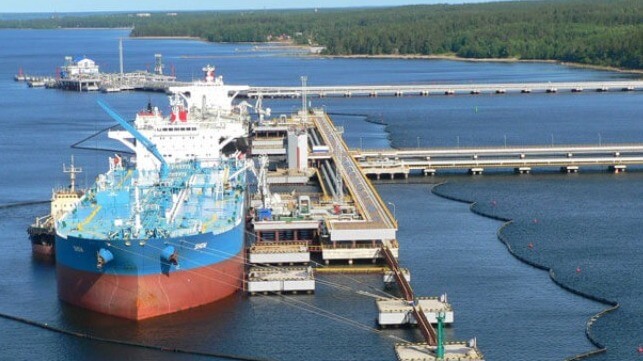
The European Council agreed yesterday to ban seaborne imports of Russian oil, forcing Russia to look further afield for energy customers. But an additional, less-noticed element of the accord could have more impact.
The EU has also reached an agreement with the government of Britain to enact a coordinated ban on European insurance for Russian oil cargoes, the Financial Times reported Tuesday. This will cut Russian energy exporters off from the Lloyd’s market for H&M and from the International Group of P&I Clubs, which provides about 95 percent of global cover for tanker liability. The reinsurance business is also heavily concentrated in Europe, and will likely be heavily affected.
In anticipation of a formal ban, Western insurers have already begun shying away from Russian oil cargoes, according to Reuters. Even vessels with no Russian connection other than a charter party risk losing their cover if they pick up Russian crude. Shipping executives told Reuters that the impact would begin to be felt by July, when withdrawn policies begin to expire.
Since oil exports account for about 40 percent of Russia’s federal budget, the marine insurance ban represents a sanctions expansion with global reach, reminiscent of stiff U.S. sanctions on Iranian oil exports. The absence of European insurance could force Russia to engineer its own government-backed coverage for its cargoes.
Meanwhile, other oil-producing nations are eyeing the possibility of filling the gap. Several OPEC members are considering the idea of suspending Russia from the production quotas agreed by the OPEC+ group, a loose cartel of 10 non-OPEC member nations that participate in OPEC supply controls, according to the Wall Street Journal. If the move were carried out, other OPEC nations would have the option of pumping more oil to fill Russia’s quota, without exceeding the group’s topline production number.
Russia has already fallen out of participation with the OPEC+ agreement because Russian production levels have dropped since the start of the invasion, an OPEC delegate told the Wall Street Journal. All forecasts suggest even lower production ahead: In April, Russian Finance Minister Anton Siluanov predicted that Russia’s output would fall by 17 percent over the course of 2022, without taking the latest EU sanctions into account.

